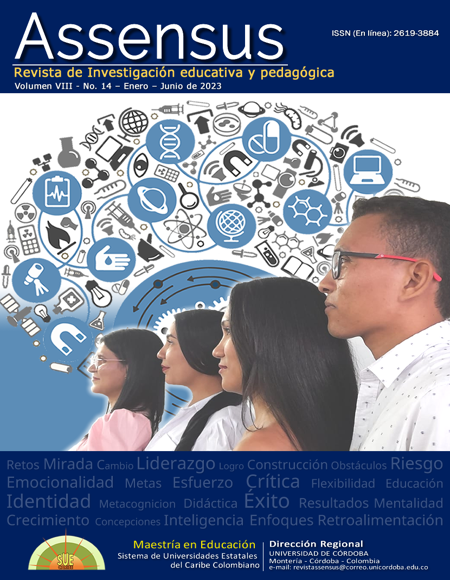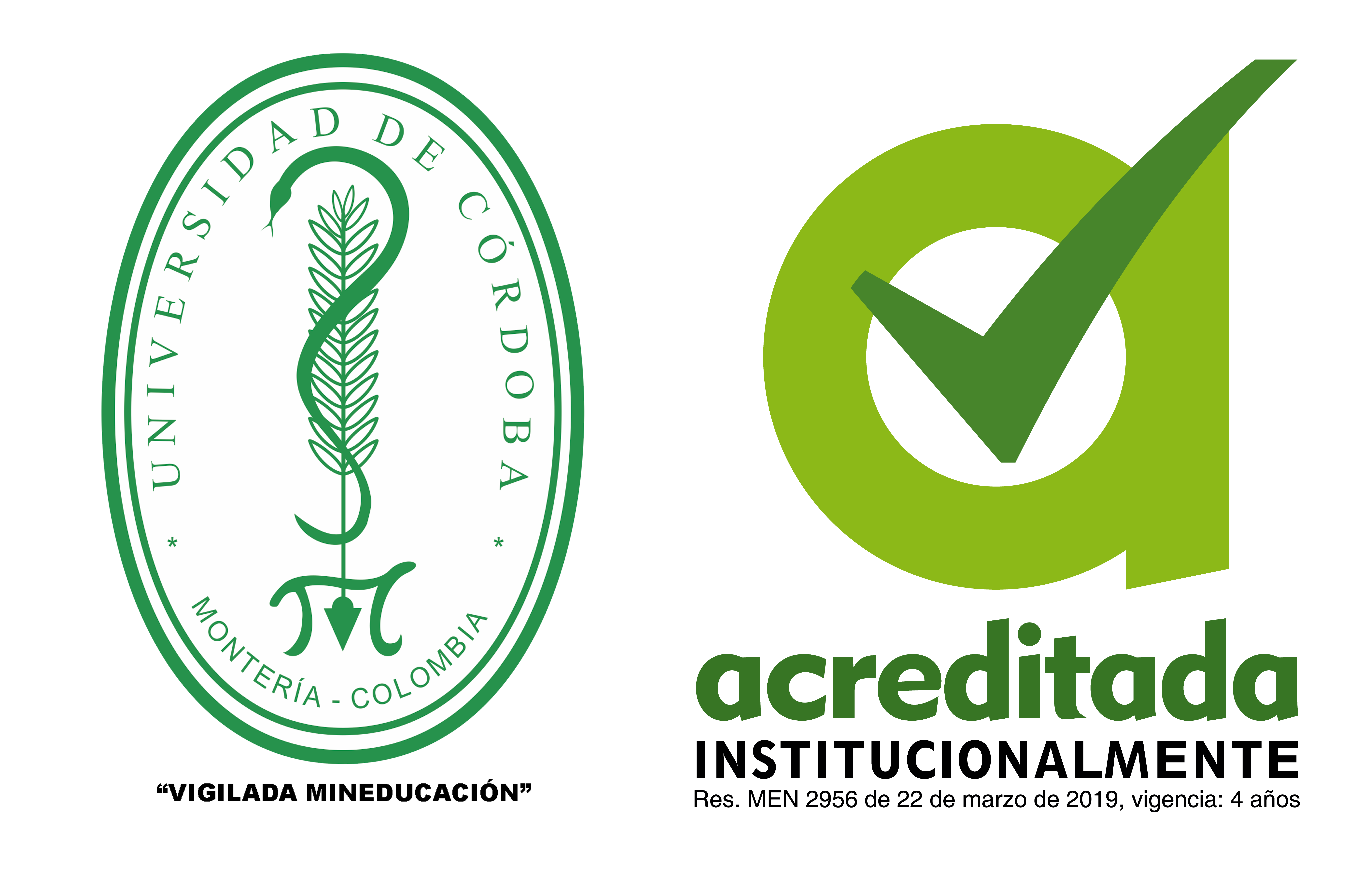"Bitácora MaP", A Metacognitive and Didactic Strategy that Develops Specific Competencies of Natural Sciences
“Bitácora MaP”, Una Estrategia Metacognitiva y Didáctica para el desarrollo de competencias en ciencias naturales

This work is licensed under a Creative Commons Attribution-ShareAlike 4.0 International License.
The Assensus journal has a Creative Commons license. The citation, use and partial or total reproduction of the contents is authorized by citing sources. For more information, see https://creativecommons.org/licenses/by-sa/4.0/deed.en
Show authors biography
Metacognitive and didactic strategies are a valid alternative to teach thinking, they refer to the planning, regulation, conscious control and evaluation of the cognitive activity displayed by students in their learning process. The present study through a design of Pedagogical Action Research aimed to transform the didactic pedagogical practices in the teaching of natural sciences in secondary education, for this it designs a didactic sequence mediated by the application of the Metacognitive and Didactic Strategy (MaP Log) based on questions that develop thinking and enhance the development of scientific competences from the area of natural sciences, starting from a situated teaching and learning, focused on real and contextualized situations, which motivate and link, actively and significantly, teachers and students to learn from the resolution of disciplinary and sociocultural problems. The conclusions of the study favor the integrated design of didactic sequences focused on student learning by applying the metacognitive and didactic strategy "Bitácora MaP" through the implementation of learning and evaluation tasks based on experiential-contextual learning experiences, based on problems, projects and challenges whose understanding facilitates the student to intervene in their sociocultural reality by applying the scientific knowledge developed in the classroom in the solution from the explanation and understanding of contextual phenomena that affect your social and institutional family community.
Article visits 309 | PDF visits
Downloads
- Agencia de Reincorporación y Normalización [ARN]. (2021). Planes de desarrollo con enfoque territorial (PDET): Herramienta para la construcción de paz con legalidad en Colombia. https://www.reincorporacion.gov.co/es/reincorporacion/PDET/PDET%20-%20General%20-%20Mayo.pdf
- Arieta Pensado, F. R. (2005). Bitácora MaP. Una estrategia metacognitiva y didáctica. Ariza, J. P. S., & Velandia, P. Y. B. (2019). Desarrollo de competencias científicas a partir de las propiedades de la materia. Educación Y Ciencia, (22), 539-553.
- Bandura, A. (1993). Autoeficacia percibida en el desarrollo y funcionamiento cognitivo. Psicóloga educativa, 28 (2), 117-148.
- Barrios, A. (2009). Concepciones sobre ciencias naturales y educación ambiental de profesores y estudiantes en el nivel de educación básica de instituciones educativas oficiales del departamento de Nariño. Revista Historia de la Educación Colombiana. 12 (12), 249-272.
- Bernal, P. A. (2009). Elites Locales, Grupos Armados Y Empresa La Minería Del Ferroníquel En El Municipio De Montelíbano, Córdoba. [Tesis de maestría, Universidad de los Andes] archivo digital. https://repositorio.uniandes.edu.co/bitstream/handle/1992/11075/u371916.pdf?sequ ence=1
- Díaz-Barriga, F y Hernández R, G (2010). Estrategias Docentes para un aprendizaje significativo., Una interpretación constructiva. McGraw Hill.México; D.F
- Eder, M. (1998). La didáctica general y la didáctica de las ciencias naturales. Una mirada epistemológica.
- Elliot, J. (1991). La investigación-acción en educación. Madrid: Morata.
- Flavell, J. H. (1993 a.) El desarrollo cognitivo, Madrid: Visor.
- Hernández, R., Carlos, F. C., & Pilar, B. L. (2014). Metodología de la investigación. Mcgraw-HILLINTERAMERICANA DE MÉXICO. Colombia, Bogotá, 284. 6ta edición.http://www.unesco.org/new/fileadmin/MULTIMEDIA/FIELD/Montevideo/pdf/Poli
- ICFES. (2019). Encuentro regional Saber 2019. Bogotá.
- INFOBAE. (2022, junio 7). Fedesarrollo alertó sobre la calidad educativa en Colombia: aunque hay mayor cobertura hay menor desempeño. infobae. https://www.infobae.com/america/colombia/2022/06/07/fedesarrollo-alerto-sobre-la-calidad-educativa-en-colombia-aunque-hay-mayor-cobertura-hay-menor-desempeno/
- Macedo, B. (2016). Educación científica. [Foro abierto de ciencias Latinoamérica y
- Machuca, F. (Abril de 2022). Estrategias metacognitivas para potenciar el aprendizaje. Obtenido de https://www.crehana.com/blog/negocios/estrategias-metacognitivas/
- MEN (1998). Lineamientos curriculares de Ciencias Naturales. Obtenido de Portal MinEducación: https://www.mineducacion.gov.co/1621/articles89869_archivo_pdf5.pdf
- Montse , T. (2005). La metacognición en la escuela: la importancia de enseñar a pensar. Obtenido de Redalyc.org: redalyc.org/pdf/3421/342130824013.pdf
- Morales Bueno, P., & Landa Fitzgerald, V. (2004). El Aprendizaje Básado en Problemas. Obtenido de Biblioteca UDG Virtual: http://biblioteca.udgvirtual.udg.mx/jspui/bitstream/123456789/574/1/Aprendizaje%20basado%20en%20problemas.pdf
- Navarro, R. E. (2003). El rendimiento académico: concepto, investigación y desarrollo. REICE. Revista Iberoamericana sobre Calidad, Eficacia y Cambio en Educación, 1(2), 0
- OECD. (2020). Resultados del informe PISA 2018 (Volumen II): Donde todos los estudiantes pueden tener éxito. OECD Publishing. https://doi.org/10.1787/b5fd1b8f-es
- Restrepo Gómez, Ph. D., B. (2006). La Investigación-Acción Pedagógica, variante de la Investigación Acción Educativa que se viene validando en Colombia. Revista de la Universidad de La Salle, (42), 92-101.
- Stenhouse, L. (1981). ¿Qué es la investigación educativa? Madrid: Morata.
- Taylor, S. J., & Bodgan, R. (1987). Introducción a los métodos cualitativos de investigación. Traductor Piatigorsky J. Mexico. Paidós.



